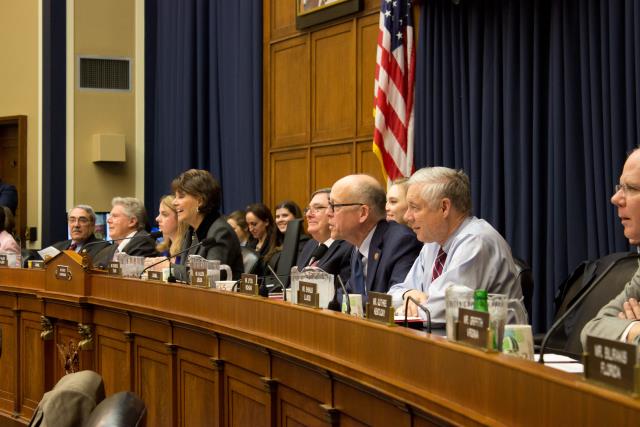‘We lack data’: Walden urges more cannabis research

At hearing on 'Cannabis Policies for the New Decade'
WASHINGTON (KTVZ) -- Rep. Greg Walden, R-Ore., urged more research on the health effects of cannabis Thursday during a House Energy and Commerce Subcommittee on Health hearing entitled, “ Cannabis Policies for the New Decade.”
The hearing was held after Walden joined Reps. Michael Burgess, Morgan Griffith and Cathy McMorris Rodgers in sending a letter to the committee chairman to request the hearing so that Congress finally had the opportunity to review and improve federally sanctioned research on cannabis.
Currently, cannabis is a Schedule I controlled substance under the Controlled Substances Act. Under this law, researchers seeking to investigate cannabis must work with the Food and Drug Administration, the National Institute on Drug Abuse and the Drug Enforcement Administration to meet the federal requirements specified in the CSA to conduct research. Researchers can only use cannabis products sourced through the NIDA’s Drug Supply Program single DEA licensee: the University of Mississippi.
“Unfortunately, [cannabis used for research] is distinct from what is commercially available from state-legal dispensaries, such as in my home state of Oregon, meaning that we have little to no data on the health impacts of products in states that have legalized cannabis for medical or recreational use. In Oregon, you can purchase a range of THC-infused products,” Walden said.
Walden then displayed a photo of THC-infused cookies from Bend and noted that the cookies in the pictures contained 5 mg per serving and 50 mg per package, per Oregon restrictions. However, he said that if you were to go across the Columbia River to Washington, you would find a different limit -- 10 mg per serving and 100 mg per package.
“The difference is arbitrary,” Walden said. “We lack data. What we do know is there have been an elevated number of cannabis related poison center calls, emergency room visits, and impaired driving incidents. We need the research that reflects the reality of what’s on today’s market.”
In addition to cannabis, Walden noted that products containing CBD derived from the hemp plant, have become commonplace across the country in pharmacies, health food stores, and even fast food chains since hemp was removed from the CSA in the 2018 Farm Bill.
“These products often contain claims that they can effectively treat depression, inflammation, and even cancer or Alzheimer’s," Walden said. "However, none of these claims have been evaluated or approved by the FDA, meaning patients may be relying on the unsubstantiated claims of CBD products and forgoing other, proven, medical treatments. While there is potential for CBD to provide real patient benefit, the research and science lags far behind the market and the agencies are struggling to catch up. Nationwide, exposure in youth is increasing."
Children’s exposure to marijuana products rose by 146.5 percent nationwide from 2006 to 2013. In states that have legalized medical marijuana, such as Oregon, exposure has risen 610 percent.
“We need more research and we need more data,” Walden said. “Americans are consuming more cannabis and policy decisions on this substance have been made in a virtual information vacuum. States that have legalized marijuana, such as my state, have done so with far less information than they have on legal substances that are easily abused, such as alcohol or tobacco.”